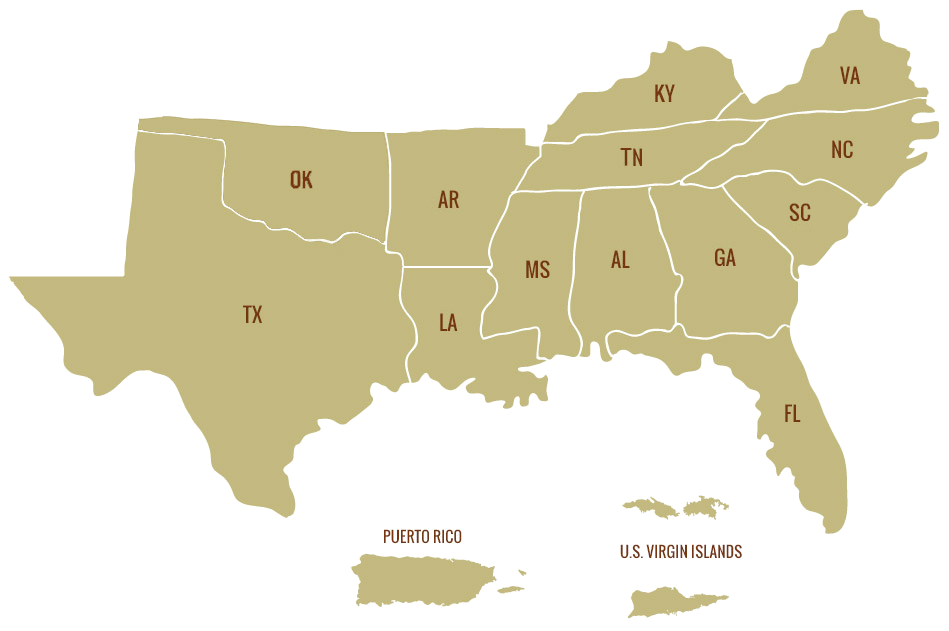About
About the Southern Group of State Foresters

The Southern Group of State Foresters (SGSF) is a 501 (c)(3) non-profit corporation representing state forestry agencies within the 13 southeastern United States, and the U.S. territories of Puerto Rico and the Virgin Islands. SGSF members collectively provide leadership, coordination, expertise and resources to sustain the economic, environmental, health and societal benefits of southern forests. This includes the delivery of regional support needed to address existing and emerging issues related to sustainable forest management, forest health, water resources, urban and community forestry, forest product markets, wildfire protection, conservation education and disaster response.
The Southern Group of State Foresters aims to ensure the growth of healthy forests, today and tomorrow. We achieve this through the following strategies:
- Promote the use of State Forest Action Plans which provide a roadmap to conserve, protect and enhance forest resources.
- Promote sound forest management practices that utilize the South’s vast and diverse forest resources, while conserving their unique environmental functions and values.
- Provide the southern perspective on national issues, policy development and legislation that impact private forests.
- Coordinate and facilitate regional consistency on critical activities such as wildfire suppression, water resource protection, insect and disease prevention and suppression, and reforestation.
- Coordinate state delivery of forest landowner assistance programs.
- Advocate for adequate funding to support the implementation of state and federally funded forestry programs.
- Support research that enhances the sustainable management of private, state and federal forestland.
- Promote issues related to wildland fire management, including prescribed burning and fire prevention assistance, fire related law enforcement, timber theft investigations and assistance to volunteer fire departments.
- Promote programs that improve forest health including prevention, detection and suppression of wildfire, diseases and insect infestations.
- Provide response and recovery assistance for other disasters such as hurricanes, tornadoes and ice storms.
- Encourage the development and maintenance of diverse and dynamic markets for traditional forest products and emerging ecosystem service markets.
- Promote programs and initiatives that encourage the retention and expansion of forestland for public as well as private sector benefits.
- Interact and collaborate with other agencies and organizations engaged in sustainable forest management.
- Coordinate and facilitate the collection, analysis, and distribution of information about the status and condition of forestland in the South.